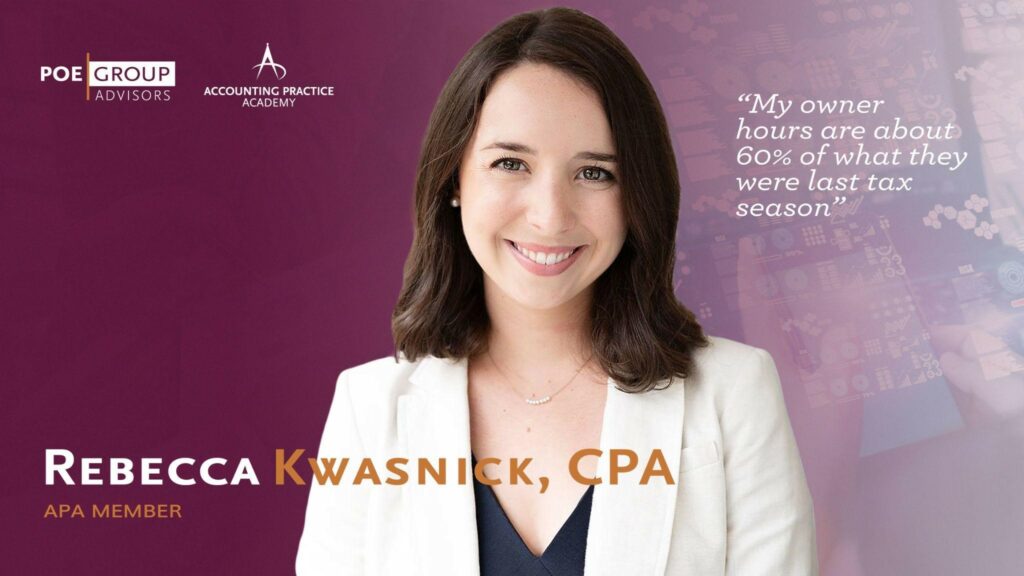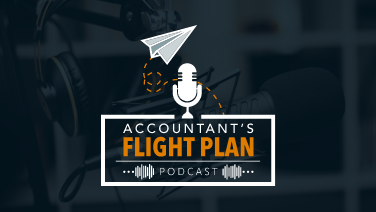A version of this article first appeared in The Journal of Accountancy’s CPA Insider™ By Brannon Poe, CPA
How does an earnout affect the buyer and seller?
Earnouts are popular deal structures used by buyers and sellers of accounting practices, but they have drawbacks. In an earnout, a buyer pays for a practice using the earnings that are expensed from that practice, plus an initial down payment in some cases. In a pure earnout structure, the buyer takes no risk in the deal and pays no interest, while the seller takes on all of the risk.
One reason earnouts became popular is that many sellers (and many buyers) have difficulty imagining that clients will transfer easily to a buyer. They believe it takes months or years for clients to become comfortable with a new owner. As earnouts place a high level of risk on a seller, they keep him or her involved in the practice for a long time after a sale in hopes of maintaining client retention. This is a false belief. When a seller selects a buyer who is the right fit for the practice, smoothly transferring those relationships is an achievable and likely outcome when the transition of an accounting practice is done with reasonable care and common sense.
How should you structure a CPA acquisition?
For this reason, we prefer to sell practices for 100% cash at closing. When this isn’t possible, we advise buyers and sellers to structure a deal that is a hybrid of an earnout and a cash-only deal. A number of variables can be tweaked to shift risk from one party to the other, such as the duration of the contingency period, the size of the down payment, and the percentage of price adjustment for each dollar of lost revenue.
In our experience over the last few years, we have seen that when firms sell for exceptionally high multiples, we may see some earnout structures when the sales price is 1.5 to 2x gross revenue. They may receive 1.3x cash down with an earnout on the remaining agreed-upon amount for six months to a year. Our team strongly discourages accepting less than 1x of your multiple in cash at close as long as you are not pursuing a fire sale. In our data from the last several years the majority of our deals receive a minimum of 1x of their gross revenues at the time of close and in most cases, more.
In our opinion, pure earnouts place the risk on the wrong party, which is why sales with earnout structures lend themselves to problems. Here are some of the issues firms frequently run into when making deals that include earnouts:
1. Loss of Clients:
Earnout structures can lead buyers to “cherry-pick” only the clients they deem worthy of keeping. If buyers don’t lose money when clients leave, they have no financial incentive to hang on to those they don’t want to serve. This can be especially problematic when the buyer and seller have big differences in how they value their clients, deliver and price services, or when the buyer doesn’t have enough staff to give clients the level of service they’ve become accustomed to. Clients may become dissatisfied with the changes and leave the firm, costing the seller money.
Our experience, in selling accounting practices since 2003, has shown us that buyers who pay cash for practices approach transition and client service with much greater enthusiasm. In the rare instances we have experienced where buyers have had earnout clauses in their contracts, those buyers typically lost a higher percentage of clients than did cash buyers.
One caveat: In some instances, earnouts are necessary to protect the buyer. Most commonly, we’ve seen this occur when a practice has a concentration of especially large clients or when a past or present partner or employee may pose a competitive threat to the practice.
2. More Transition Issues
Many CPAs believe that, after a practice changes hands, it’s good for the seller to stay in the office for several months or even years to help ease clients’ transition. In our experience, that is not true in most cases. The earnout structure often incentivizes sellers to stay in the practice far longer than is necessary for a successful hand-off, and when that happens, control battles often ensue.
Moreover, buyers often bond with clients faster if the seller is not around. If the seller is in the office when the client calls or comes by, the client will want to talk to the seller, not the buyer, and the buyer-client relationship is not nurtured. Plus, the buyer often loses money by paying the seller a substantial salary to stay on for a while. Often, the buyer could afford to lose a lot of clients for what he or she is paying the seller for extended transition assistance.
There are of course exceptions to this. For example, in private equity acquisitions, it can be optimal for the seller to stay on for a while where the PE firm is providing structure and back-office support. This is because the goal here is often other acquisitions and growing a larger practice. A private equity buyer will value and need the continued support of the seller who is usually still invested with growth equity. You can read more about this in our new report, “Private Equity M&A in the Accounting Industry.”
Another exception to speedy transitions can occur when there are multiple partners. When timelines are misaligned on retirement with partnerships, it can be ideal to keep some partners on board. As firms get larger, oftentimes client relationships are not solely owned by the seller. In these instances, it can be great to keep company culture and maintain client points of contact by employing partners not ready for retirement. Transition planning in these cases must be carefully done before closing to ensure a healthy start to a new relationship. Finding a buyer for these types of transitions can also take longer because fit becomes even more crucial when a partner plans to work with the new owner for an extended period.
3. More Disputes
When a seller doesn’t end up receiving what he or she had hoped for from the earnout structure, disputes often arise. According to data from SRS/Acquiom, in general business sales, about two-thirds of earnout deals give rise to conflicts regarding escrowed funds. In our experience, the most frequent cause for dispute is that a buyer either didn’t calculate the revenue as agreed or was negligent in developing client relationships and/or providing reasonably good client service.
4. Why to Choose a Cash Deal Instead
Cash deals happen much more frequently than many realize. At our firm, we often sell practices for all cash or cash equivalent with no risk to the seller for client retention. Over half of our transactions are sold with 100% cash at closing, while approximately 85% of our transactions have fixed-price structures, leaving only about 15% with any contingencies whatsoever. We believe a small sacrifice in price is well worth getting the right terms. Furthermore, we believe fixed pricing helps both parties in the deal because it generally facilitates better transitions.
5. Contingent Earnouts Leave Uncertainty for the Future
The biggest benefit of our no-contingencies deals is that they allow the seller to move on to retirement or to his or her next endeavor without thinking about the practice for years after the sale. The seller can experience a clean break—after all, the new owner of the business should be the one who should be fully focused on it. Cash deals also benefit the buyer because they allow him or her to make the decisions about how to best run the business. It’s the buyer’s to grow or change as he or she sees fit from day one.
About Brannon Poe: Brannon is the founder of Poe Group Advisors and has been facilitating successful accounting practice transitions throughout the US and Canada since 2003. He is also the creator of Accounting Practice Academy. Brannon is the author of the Accounting Practice Insights Blog and hosts the Accountant’s Flight Plan” podcast with other top thought-leaders in the accounting profession. Brannon is an E&Y alumnus. He has worked with some of the most successful and seasoned CPAs in the industry and has been privy to the behind-the-scenes methods that these clients have used to build highly profitable practices along with capable and independent teams. Brannon has authored multiple books, including Accountant’s Flight Plan – Best Practices for Today’s Firms (published by both the AICPA and CPA Canada) and On Your Own: How to Start Your Own CPA Firm, Second Edition (published by the AICPA). Brannon is passionate about entrepreneurship and is the president-elect of EO Charleston (Entrepreneur’s Organization)






